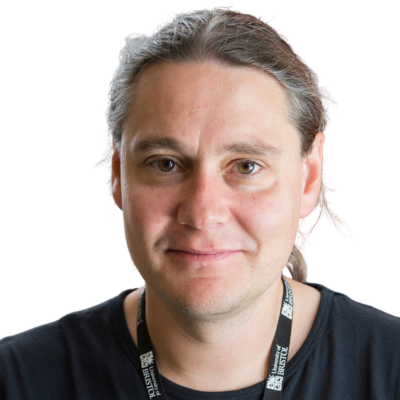
John Innes Centre
The John Innes Centre in Norwich, UK, is a world-leading research institute in plant and microbial science. The team is led by Prof. Antony Dodd, whose research explores how circadian regulation impacts plant physiology, growth, and adaptation to environmental conditions. As part of the MicroClock project, the JIC group investigates how biological clocks help optimize plant performance in changing environments.

Antony Dodd
Principal Investigator
Professor Antony Dodd studies circadian clocks in both plants and bacteria, exploring how these internal timekeeping systems help organisms adapt to changing environmental conditions. His research combines laboratory and field-based experiments, integrating molecular genetics with quantitative approaches to uncover fundamental biological rhythms.
📧
📞 +44 1603 450015

Jack Dorling
Project Collaboration
Jack investigates how circadian clocks in bacteria and plants interact to coordinate their daily biological activities. His work explores fundamental properties and functions of the recently discovered circadian clock of a soil bacterium, Bacillus subtilis, applying this knowledge to understand beneficial circadian clock-regulated bacteria-plant interactions. This aims to deepen understanding of circadian ecology, with potential applications in sustainable agriculture, soil and ecosystem health, and understanding impacts of global warming.
Trained as a molecular microbiologist, Jack has a strong background in bacterial molecular biology, metabolism, ecology and evolution. His previous research has examined bacterial cell wall metabolism and bacteriophage infection under nutrient-limitation.
Trained as a molecular microbiologist, Jack has a strong background in bacterial molecular biology, metabolism, ecology and evolution. His previous research has examined bacterial cell wall metabolism and bacteriophage infection under nutrient-limitation.

Holly Kay
Postdoctoral Researcher
Holly Kay investigates the role of circadian rhythms in mutualistic interactions between plants and bacteria. As part of the ERC-funded MicroClock project, she focuses on the circadian clock in Bacillus subtilis, working in collaboration with LMU Munich and Leiden University. Her research explores how biological clocks influence interspecies coordination and the benefits these interactions provide.

Pirita Paajanen
Senior Scientist
Pirita Paajanen is a senior scientist and mathematician interested in understanding how the circadian clock keeps in time in fluctuating environments. In previous and on-going work, she is investigating the circadian rhythms of Arabidopsis halleri in nature. As a data scientist, she is happy to work with data from many different organisms from cyanobacteria to trees, finding patterns in complex datasets.
In MicroClock she is keen to develop mathematical models of the rhythms observed in the various Bacillus subtilis and Arabidopsis thaliana datasets.
In MicroClock she is keen to develop mathematical models of the rhythms observed in the various Bacillus subtilis and Arabidopsis thaliana datasets.

Zeke Student
Research Technician
Zeke Student is a research technician with a background in plant-microbe interactions. His previous work focused on the interactions between human pathogens and lettuce, identifying lettuce cultivars resistant to E. coli growth within the leaf and searching for a genetic mechanism to explain the trait.
In MicroClock Zeke works to study the circadian interactions between plants and the soil microbe Bacillus subtilis.
In MicroClock Zeke works to study the circadian interactions between plants and the soil microbe Bacillus subtilis.

Caroline White
PhD Candidate
Caroline White is a PhD candidate with a research background in plant sciences, microbiology and molecular biology. Her first insight into chronobiology research was during her undergraduate thesis project where she investigated the roles of specialised metabolites and the circadian clock in root colonisation by Bacillus subtilis.
As a part of the ERC MicroClock project, Caroline’s current focus is investigation of the contribution of circadian rhythm interactions between the circadian clock models Arabidopsis and Bacillus, and how these interactions influence organismal fitness.
As a part of the ERC MicroClock project, Caroline’s current focus is investigation of the contribution of circadian rhythm interactions between the circadian clock models Arabidopsis and Bacillus, and how these interactions influence organismal fitness.
